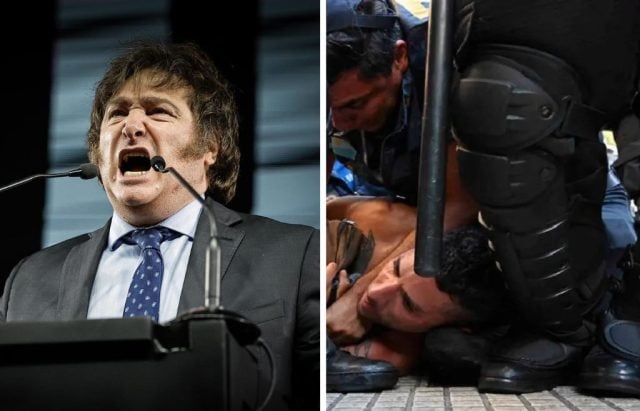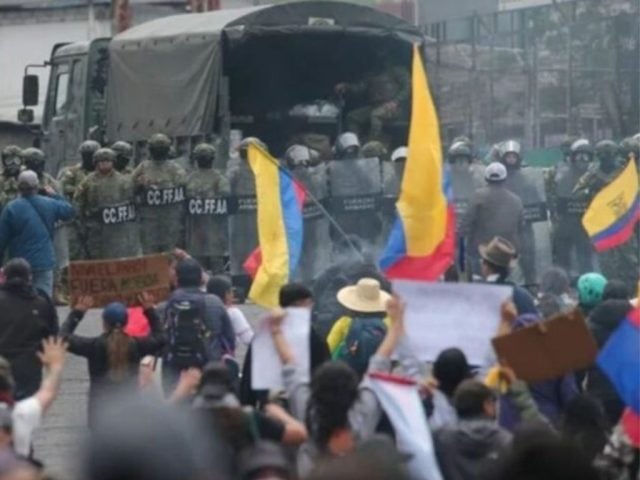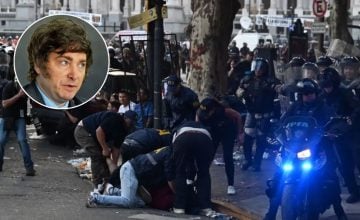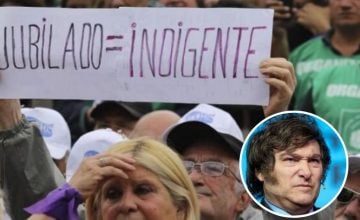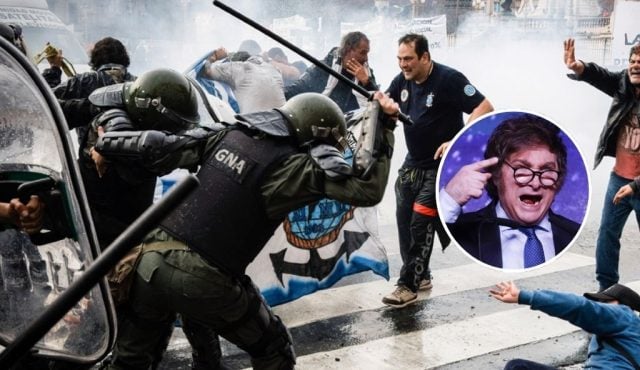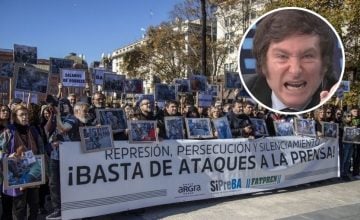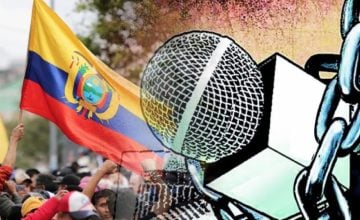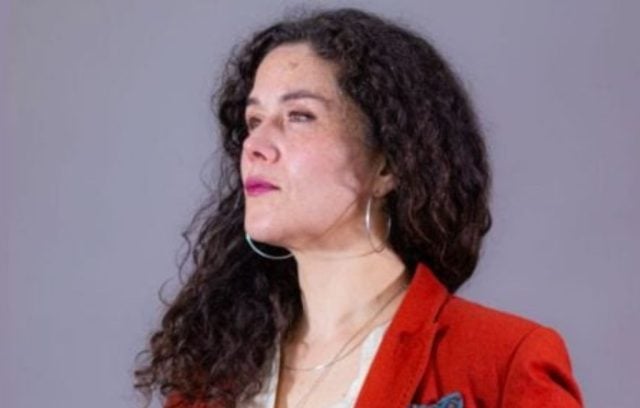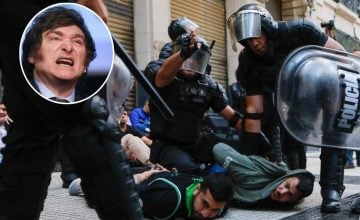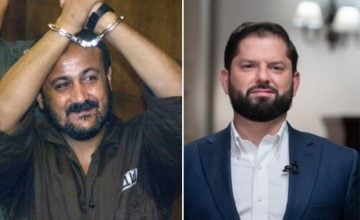Original article: Gobierno de Milei se victimiza ante la ONU y evade cifras de heridos, detenidos y torturas, denuncian organismos de DD.HH.
Milei Government Downplays Human Rights Violations at UN, Ignoring Injuries, Arrests, and Torture Allegations, Human Rights Groups Claim
During their appearance before the United Nations Committee Against Torture (CAT) in Geneva, representatives of President Javier Milei’s administration denied allegations of dismantling human rights policies and sidestepped issues regarding injuries, arrests, and torture reported following numerous police actions against street protests.
Representatives from the National Torture Prevention Committee (CNPT), the Provincial Commission for Memory (CPM), and the Center for Legal and Social Studies (Cels) asserted that the delegation from La Libertad Avanza, including Deputy Secretaries Alberto Baños for human rights, Julián Curi for penitentiary affairs, and Diego Goldman for legal affairs, failed to address any questions posed by international experts and chose instead to «victimize themselves and threaten to label as false» the investigations conducted by human rights organizations that document the increase in police repression since December 2023; the arbitrary use of less lethal weapons; irregular arrests during protests; violence in detention centers in Buenos Aires province; and poor judicial response in cases of torture and mistreatment.
Evasive Response to Repression Figures from Milei Government
In detail, the CPM presented a thorough report to the CAT documenting state violence between December 2023 and June 2025, which recorded at least 2,467 injuries and 223 arbitrary arrests in the context of social protests. The document also denounced the systematic nature of these practices, stating that federal and Buenos Aires City security forces repeatedly employed rubber bullets, tear gas, batons, and water cannons.
In response to these accusations, officials did not specifically address any of the figures, records, or cases raised. Diego Goldman, Deputy Secretary for Legal Affairs, dismissed the data by claiming that «the numbers of injured during protests are all lies,» without providing alternative data or evidence to contradict the reports.
The CPE accused that «this position signifies a significant regression for our country concerning human rights.»
“Neither these nor other inquiries about the human rights situation in Argentina were answered by the national government, nor did they specifically respond to any figures, records, complaints, or cases,” they indicated.
Justification of the ‘Anti-Protest Protocol’ and Disproportionate Use of Force
Jorge Contesse, a Chilean member of the CAT, questioned the Argentine delegation about the legality and proportionality of the anti-protest protocol and allegations of withdrawing social benefits from those participating in protests. The official response focused on highlighting the number of injured police officers and justifying the repression.
Delegation members linked criticisms of the protocol to a «nostalgic opposition that has not yet come to terms with having lost the elections.»
Curi responded that the organizations sitting there, nor the news channels seen by Contesse, showed the more than 200 police officers injured in protests.
“The right to peaceful protest is guaranteed, but if one is going to hit the police or throw stones, that is illegal,” expressed the Deputy Secretary for Penitentiary Affairs while defending the use of legal provisions on damage and resistance to authority.
Regarding the use of less lethal weapons, he referred to them as «non-lethal» and defended their use during protests. “The right to protest is guaranteed, but if one is going to hit the police, that is illegal,” he asserted.
As reported by Página/12, Milei’s officials argued that criticisms of the «anti-protest protocol» stem from a «nostalgic opposition that has not yet come to terms with having lost the elections.»
Denial and Disqualification
The cited media outlet noted that they also resorted to disqualification and repetition of denialist expressions, such as questioning the number of the disappeared or references to the «businesses» supposedly hidden behind memory policies.
According to the CPE, members of the «libertarian» delegation utilized the prestigious setting of the UN to assert generically and vaguely that «the current memory policy is being carried out with a broad memory, unlike what some ideologues of the past claim; what they say is false; refurbishments of memory sites have occurred like never before; sites have not been closed; … reparative law payments have not been abandoned,» claiming that «business has been organized around human rights (…) now complete memory is promoted.»
In line with positions maintained by the Milei government, the official questioned the figure of 30,000 disappeared individuals, arguing that there exists a «imposed narrative» that resists reviewing this number.
«When one questions the famous number of the disappeared, they automatically fall into denialism,» he stated before the Committee.
The organization pointed out that at no point during his intervention did Baños clarify that all sites directly dependent on the Human Rights Undersecretariat he leads had been drained both budgetarily and mainly in available personnel to carry out the specific tasks of each space.
It also criticized that despite his status as a former judge, lawyer, and knowledge of laws and international commitments, the undersecretary claimed that human rights organizations are «colonized and at the service of political opposition» and that they seek to «have the Argentine Republic on its knees giving explanations about what it should not have to explain.»
«Unable to respond or provide reliable data,» the government «resorted to the strategy of victimizing itself and threatening to label the Committee’s statements as false when their questions became uncomfortable,» the CPM indicated.
